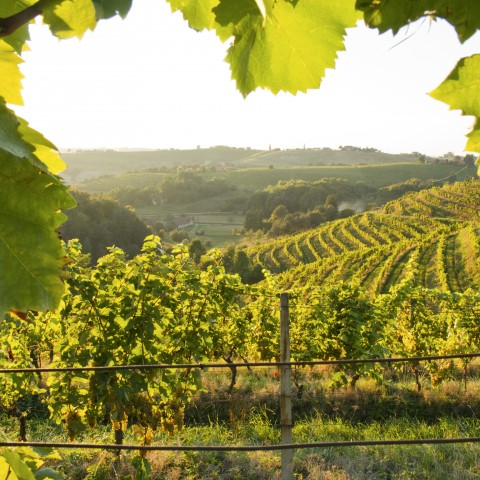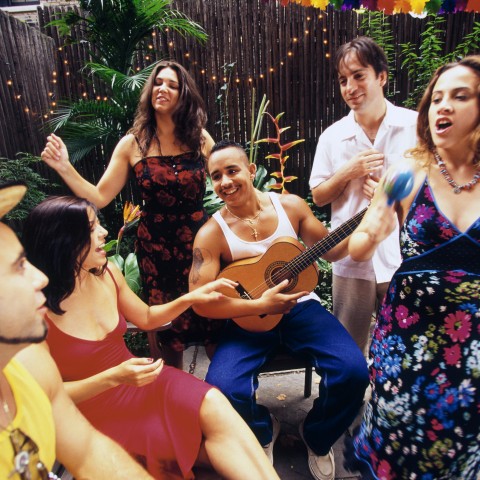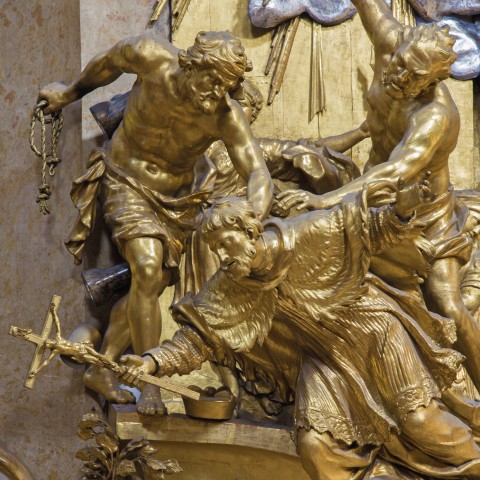Sveti Tryphon Zarezan, also known as St. Trifon Zarezan or St. Trifon’s Day, is held in celebration of Saint Trifon, the patron saint of wine. In honor of St. Trifon, Bulgarians celebrate this folk holiday by holding the Trifon Zarezan Festival, which we’ll learn more about below.
By delving into this fun, festive, and merry holiday, you’re also peeling away at the layers of Bulgarian culture. And learning about any country’s culture is vital in language-learning!
Here at BulgarianPod101.com, we hope that you enjoy getting to know Bulgaria and gain valuable insight! So let’s get started.
1. What is Bulgarian Sveti Tryphon Zarezan?
Trifon Zarezan is also called Vine-Growers’ Day. It’s an unofficial or folk holiday celebrated in honor of Saint Trifon. Other popular names for the feast are Zarezanov Den and Trifon Drunkard.
Saint Trifon himself was a healer and became a saint martyr. He came from a region in Asia Minor, considered to be the land where vines and “wine,” or vinoto, originated. Saint Trifon is considered a patron of vines (or the patron saint of wine) and Trifon’s Day is honored as Vine-Growers’ Day.
2. When is St. Trifon Zarezan?
Some people celebrate this day on February 1, though wineries tend to celebrate on the traditional date of February 14 (yes, the same day that Valentine’s Day is celebrated!).
3. Reading Practice: How is it Celebrated?
How do Bulgarians celebrate the Trifon Zarezan Festival? Read the Bulgarian text below to find out! (You can find the English translation below it.)
—–
Трифоновден се празнува по стар стил на 14-ти февруари, заедно с модерния празник на Свети Валентин. Но традицията повелява на този ден хората с имена, произхождащи от името Трифон да празнуват имен ден. Например това са Тричка, Тичо, Радка, Рачо и други. Трифон Зарезан обаче е основно празник на лозарите, градинарите и кръчмарите.
На този ден обикновено се приготвя варена кокшка и се омесва хляб – обикновено под формата на пита. Лозарите взимат от месото и питата и заедно с бъклица вино отиват на лозето. Там извършват ритуала по зарязването на лозите. След като отрязват по три пръчки, те се прекръстват и поливат лозите с виното.
На ритуала се избира цар на лозята и се закичва с венец от лозови пръчки. Всички се отпрявят заедно към града. Там биват посрещнати с вино, от което отпиват, а остатъкът се плисва върху царя за берекет.
—–
Trifon’s Day is celebrated according to the old style on February 14, together with the modern Saint Valentine’s Day. But tradition demands that on this day the people with names deriving from the name Trifon celebrate a name-day. These names include Trichka, Ticho, Radka, Racho, and others. However, Trifon Zarezan is mainly a feast of vine growers, gardeners, and tavern-keepers.
“Usually,” or obiknoveno, for St. Tryphon’s Day, Bulgarians boil a chicken and ensure that bread is kneaded—generally a flat loaf. The vine growers take some of the meat and bread, as well as a vessel of wine, and go to the vines, where they “perform,” or izvarshvat, the vine-pruning ritual. After cutting three sticks they “cross themselves,” or se prekrastvat, and “water,” or polivat, the vines with the wine.
The “King of the Vines” is elected during the ritual, and is then decorated with a wreath made of vine sticks. All of the people “head,”or otpravyat se, to town, where they are welcomed with wine. They drink the wine and what’s left is “splashed” or se plisva, onto the king for a rich crop.
1- Side Note on Celebrations
As Bulgarians Празнувам (praznuvam) or “celebrate” St. Tryphon, you can expect for things to get Шумен (shumen) or “noisy.” As you can imagine, on this day of festivity, drinking, and Веселба (veselba) or “merriment,” experiencing a Махмурлук (mahmurluk) or “hangover,” afterward is quite a possibility if you Прекалявам (prekalyavam) or “overdo” it. So have fun, but don’t get too crazy. 😉
4. Additional Information: Patron Saint of Wine (or Vines)
But why exactly is St. Trifon considered the patron saint of vines? What earned him this title, and what other title is he known by?
The legend states that when he used to prune his vineyard, he accidentally cut off the top of his nose. On the icons he is depicted sometimes with a vine-pruning knife or a sickle, and sometimes with a falcon sitting on his hand. According to this tradition, he is also considered patron of the falconers.
5. Must-Know Vocab
Here are some words you should know for St. Trifon’s Day. Be sure to study these to increase your Bulgarian vocabulary and better understand this fun Bulgarian folk holiday!
- Мавруд (mavrud) — Mavrud (Bulgarian grapes)
- Лозар (lozar) — winegrower
- лозарска ножица (lozarska nozhitsa) — pruning shears
- Лозе (loze) — vineyard
- Махмурлук (mahmurluk) — hangover
- Мъченик (machenik) — martyr
- Веселба (veselba) — merriment
- Шумен (shumen) — noisy
- Празнувам (praznuvam) — celebrate
- Прекалявам (prekalyavam) — overdo
- Суеверие (sueverie) — superstition
- варя кокошка (varya kokoshka) — boil a hen
- Пирувам (piruvam) — feast
- Езически (ezicheski) — pagan
- Реколта (rekolta) — crop
- Трифоновден (Trifonovden) — St. Trifon’s Day
To hear the pronunciation of each St. Trifan’s Day word, be sure to check out our relevant vocabulary list, where you’ll find an audio alongside each word.
Conclusion
Now you know about the Bulgarian holiday of St. Trifon’s Day. What do you think about this holiday? Is there a similar one in your home country? Let us know in the comments!
To learn more about the Bulgarian culture and language, visit our website at BulgarianPod101.com! We offer an array of insightful blog posts, free vocabulary lists, and even an online community where you can discuss lessons with fellow students. Download our MyTeacher app to take advantage of a one-on-one learning experience with your own personal Bulgarian teacher!
Until next time, keep practicing your vocabulary and stay tuned for more Bulgarian holiday posts. We wish you well as you continue in your Bulgarian studies!













